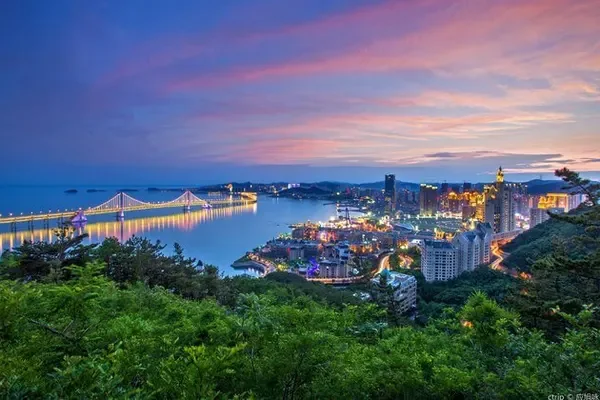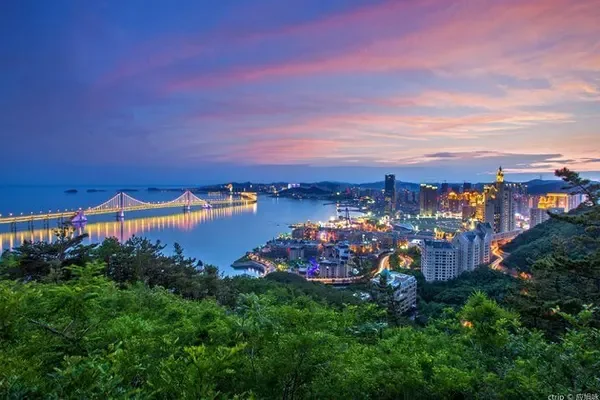Arrived in southern Xinjiang for the first time
After traveling for nearly 500 kilometers, I finally arrived at the first city in southern Xinjiang - Korla. Yes, it is the place where fragrant pears are produced. When we arrived, the fragrant pears were still hanging on the trees and not yet ripe. Not long after leaving Urumqi, I passed the Bailifeng District near Dabancheng (Wang Luobin's song "The Girl in Dabancheng" also made this place famous all over the world). Around level 8, the maximum reaches level 12 to force the passing trains to stop. Fortunately, we didn't encounter it when we passed by that day. Due to the abundance of wind resources, large and large windmill arrays have been built here. It became the object of our shooting, which is spectacular. I hope these big windmills can contribute to the environmental protection and emission reduction that our country has solemnly promised to the world. Turn on the G3012 Expressway at the Xiaocaohu Interchange and head south. The road runs through the valley at the end of the Tianshan Mountains, and enters the Gangou section after passing Tuokesun County. Both sides of the road are full of rocky hills with no grass growing, and some hilltops are covered with weathered rocks and gravel. During a break on the way, I met a few workers from Sichuan who came here for construction and asked us if we were here for tourism. I said "yes". "What is there to see in these barren mountains and bald mountains?" "You can't see it in a big city." Traveling is like this. I always want to see some things I haven't seen before. One of the highlights of traveling in Xinjiang is the desolation and majesty of the desert and Gobi.





















In Yuli County, I went to a scenic spot called Rob's family. This scenic spot is quite unique, integrating sand dunes, lakes and Populus euphratica. All the people who lived here have moved out, and this place has been used as a scenic spot. The aborigines here are also very interesting. I don't know when they settled here to escape the war or the plague. Because it is not far from the uninhabited Gobi Lop Nur, they call themselves Lop people. They neither farm nor herd. They make a living by fishing in the lake with their homemade canoes. Over the years, they have repeatedly applied to become the 57th ethnic group, but the National Ethnic Affairs Commission has not approved it. To be approved as an independent nation of the country, there must be certain standards in the system, or our country will soon have 100 nations and 100 flowers. There are several large and small lakes deep in the desert, and it is quite strange that there are fish in the lake that can feed everyone. According to the introduction from the security guards (locals) of the scenic spot, the lake water is groundwater, and the fish are brought by the flooding of the nearby Tarim River when it floods. I have been to the Crescent Moon Spring in Xiangsha Mountain in Dunhuang. The small pool of clear water there would have dried up long ago if a deep well had not been dug to maintain it. But it is strange that some of the lakes here have never dried up in recorded history. Sitting at the entrance of the scenic spot are several old men with white beards who claim to be over a hundred years old, saying that this is the hometown of longevity. Our driver told me that these old men have been sitting here for many years, and they come to earn one day, which is a gimmick for the promotion of the scenic spot.




























In order to cross the Taklamakan Desert in one day, we stayed in Luntai, a county town at the northern end of the desert road, on the second day of our arrival in southern Xinjiang. This county is not big, but it is famous in history, and it has been used to this day. Lu You, a great poet of the Song Dynasty, had a poem that said, "I lie in a lonely village and don't feel sorry for myself. I still think about defending Luntai for the country. I lie in the middle of the night and listen to the wind and rain, and the iron horse and ice river fall into my dreams.". It can be seen that in the Song Dynasty, this was the westernmost edge of the Chinese territory. As early as in the era of Emperor Wu of the Han Dynasty, a military and political leadership agency such as the Western Regions Protectorate was established in Luntai. Luntai has a special product - white apricot, and Luntai is also known as the hometown of white apricot. When we arrived, the white apricots were just ripening, and we picked and ate them in an apricot orchard by the roadside, and added a picking project on the way. Eat whatever you want in the garden, and buy 25 catties. The owner of the garden is busy packing piles of picked apricots for delivery. The apricots that grow on the trees are very sweet, and the apricots that are packaged for delivery are all green in color and not so sweet. The owner of the garden said that it takes more than two days for SF Express to deliver the goods to the customer, and the overripe apricots may be rotten when delivered to the customer. All in all, white apricots delivered by express delivery are not as delicious as sitting under a tree. It was because it was so delicious that the three of them had diarrhea that night. In order to cross the Taklamakan Desert the next day, we prepared a lot of mineral water and naan in Luntai. Get everything ready to hit the road the next day.




